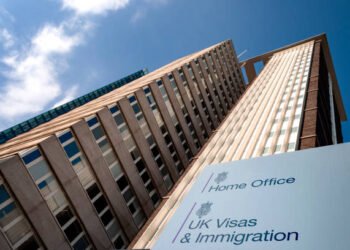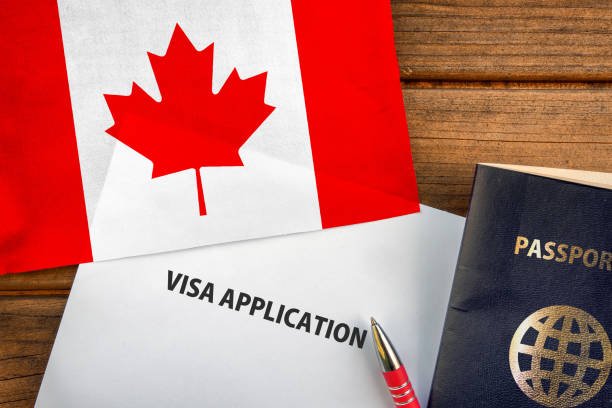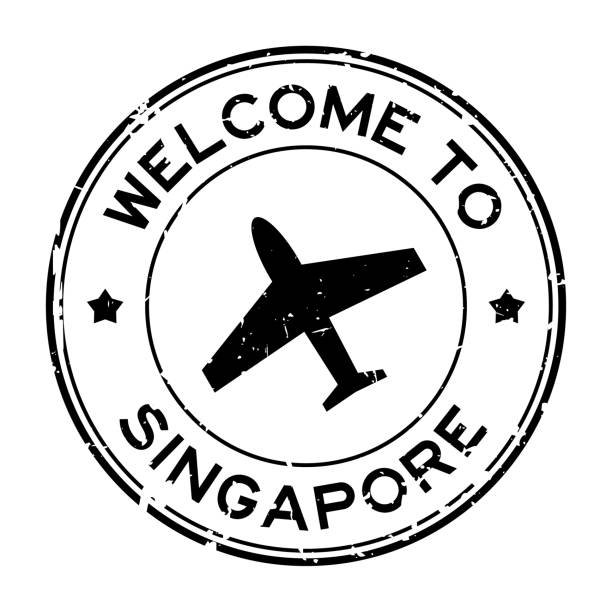What if the only thing standing between you and your dream life abroad is a skill you already have or the one you can easily learn? As countries around the world race to fill labor shortages, skilled immigrants are no longer just welcomed, they are urgently needed. If you’ve ever dreamed of relocating for better pay, stability, or opportunity, now is the time to act. In this post, you’ll discover the exact skills that are unlocking doors to visa approvals and sponsorships in 2025.
Advertisement
Understanding the Link Between Skills and Visa Sponsorship
In recent years, countries across the globe have recognized the need to fill labor shortages through skilled immigration. Populations have aged, local talent has remained insufficient in certain sectors, and economic recovery post-COVID-19 has required specialized expertise. As a result, immigration systems have been structured to favor those with in-demand skills. Skilled workers have been given preferential treatment in visa processing, while pathways to permanent residency have been streamlined for professionals in technology, healthcare, and other key industries.
How Skilled Labor Impacts Visa Approval Success
When immigration officers assess visa applications, skills listed under national shortage occupation lists or priority sectors have been viewed favorably. These skills have increased the applicant’s value to the host country’s economy. Visa applications have often been fast-tracked if a job offer has been attached and if the profession has been pre-identified as critical. In contrast, applications without in-demand skills or with unverified work experience have frequently been delayed or rejected.
Differences Between Job Offer, Sponsorship, and Skills-Based Migration
A job offer has referred to an invitation to work for a company, while sponsorship has involved the employer or government entity taking legal and financial responsibility for the immigrant’s stay. Skills-based migration, on the other hand, has referred to visa categories that reward points or eligibility based solely on the applicant’s competencies, without the requirement of an immediate job offer. Countries like Canada, Australia, and New Zealand have all offered programs that assess applicants based on skill level, work history, education, and language proficiency.
Advertisement
Overview of Visa Programs Favoring Skilled Applicants
Numerous countries have adopted point-based or skills-focused visa streams. Canada’s Express Entry has ranked applicants by their Comprehensive Ranking Score (CRS), rewarding those with work experience in key industries. Australia’s SkillSelect system has issued invitations based on skills assessments, language scores, and age brackets. The UK has operated a Skilled Worker Visa route, where an approved job offer in a listed shortage occupation has simplified the sponsorship process.
Top Skill Categories in Demand for Visa Sponsorship in 2025
Technology & IT
Software Development
Full-stack developers, mobile app engineers, and software architects have remained in global demand. Proficiency in languages such as Python, JavaScript, Java, and C++ has been highly valued. Employers have sought developers with portfolio work, GitHub profiles, and verifiable project experience.
Cybersecurity
As cyber threats have grown, so has the demand for security analysts, penetration testers, and cybersecurity engineers. Certification in CISSP, CEH, and CompTIA Security+ has improved sponsorship chances, particularly in Canada, Germany, and the US.
Data Science & Artificial Intelligence
Data scientists and machine learning engineers have been considered critical to innovation. Countries such as the UK and Australia have welcomed professionals with experience in big data, statistical analysis, and predictive modeling. Tools like R, SQL, and TensorFlow have been considered foundational.
Cloud Computing & DevOps
Cloud engineers, DevOps architects, and system administrators have been in demand to help firms transition to cloud-based infrastructure. AWS, Azure, and GCP certifications have made applicants more competitive.
Network Administration
Skilled network professionals with CCNA, CCNP, or other networking certifications have been needed for managing digital infrastructure. Telecommunications companies and IT support firms have actively sponsored such applicants.
Healthcare & Medical
Nursing (RN, LPN)
Registered Nurses and Licensed Practical Nurses have remained among the most sponsored healthcare professionals worldwide. The US, UK, Germany, and Australia have created fast-tracked visa schemes specifically for nurses.
Elder Care and Caregivers
Aging populations in Europe and North America have created a large demand for home support workers and caregivers. Many countries have included caregiving in their essential occupation lists, with simplified visa sponsorship rules.
Medical Lab Technicians
Technicians capable of analyzing biological samples, operating lab equipment, and conducting tests have been in demand in public health and diagnostic labs. Qualifications in biomedical science and experience in certified labs have been favored.
Physiotherapists & Occupational Therapists
Countries recovering from healthcare backlogs have recruited physiotherapists and OTs for hospitals and rehabilitation centers. Australia and Canada have prioritized these roles under their skilled migration lists.
Doctors & Surgeons
International medical graduates (IMGs) have been allowed to apply for sponsorships in many nations, especially if they’ve passed country-specific licensing exams such as PLAB (UK), AMC (Australia), or USMLE (USA).
Engineering & Technical Trades
Civil and Structural Engineers
In countries with major infrastructure projects, civil engineers have been actively recruited. Proficiency in tools like AutoCAD, Revit, and project management software has improved job and visa prospects.
Electrical & Mechanical Engineers
Technicians and engineers with knowledge in machinery, HVAC systems, and electrical frameworks have been in high demand, especially in manufacturing-heavy economies.
Welders, Fitters, and Electricians
Unskilled visa pathways have become rare, but tradespeople with vocational certifications and apprenticeships have still been sponsored under temporary labor schemes.
HVAC Technicians and Plumbers
These trades have remained critical in both residential and commercial maintenance sectors. Skilled tradespeople with licenses or certifications have been fast-tracked in countries with aging infrastructure.
Construction Project Managers
With major housing and development projects underway in regions like the Middle East and Europe, project managers with international certifications (PMP, PRINCE2) have received sponsorship more easily.
Logistics & Supply Chain
Warehouse Supervisors
Supervisory roles in warehousing and distribution centers have been included in job sponsorship categories, especially for migrants with forklift certification or inventory systems knowledge.
Truck Drivers and Heavy Equipment Operators
The UK, Canada, and parts of Europe have faced a shortage of licensed drivers. Class A/B licenses, clean driving records, and logistics experience have increased sponsorship eligibility.
Inventory Management Professionals
Specialists in SAP, Oracle, or custom inventory systems have been essential for businesses managing large-scale supply chains.
Procurement & Logistics Coordinators
Sponsorship has been offered to those experienced in international procurement, vendor negotiation, and transportation planning.

Agriculture & Farming
Farm Hands and Seasonal Workers
Shortage of local labor has made governments implement seasonal work visas. Although not always permanent, these visas have offered sponsorship opportunities.
Horticulture Technicians
Greenhouse and nursery workers with pest control, irrigation, and plant nutrition knowledge have been favored in New Zealand, Canada, and the Netherlands.
Dairy and Livestock Care Specialists
Roles in animal care, milking operations, and veterinary support have been included in rural employer sponsorship pathways.
Education & Childcare
Early Childhood Educators
Teachers with qualifications in preschool education and Montessori methodology have been sponsored by daycares and schools in Canada and the UK.
Secondary School Teachers (STEM Focus)
Specialists in science, math, and technology subjects have been in high demand, particularly in English-speaking countries.
Special Education Professionals
Those trained to work with children with disabilities have been granted visa priority in both public and private education sectors.
Hospitality & Culinary
Chefs and Kitchen Staff
High-end restaurants and hotel chains have sponsored experienced chefs with international cuisine expertise.
Hotel Managers
Hospitality managers with operations experience, customer service background, and property management systems knowledge have been prioritized.
Housekeeping and Cleaning Supervisors
Large hospitality companies have extended sponsorship to supervisory-level cleaning staff, especially those with institutional experience.
Country-Specific Visa Pathways for Skilled Workers
Canada
The Express Entry system has remained one of the most recognized skills-based migration routes in Canada. Candidates have been ranked using a points-based system that evaluates language proficiency, education, age, work experience, and adaptability. Occupations listed under the National Occupation Classification (NOC) have received preference. Provincial Nominee Programs (PNPs) have also been used to sponsor applicants who possess region-specific skillsets.
Australia
Australia has used its SkillSelect platform to allow skilled workers to express interest in migrating. Based on submitted profiles, invitations to apply for subclass 189 (Skilled Independent), 190 (Skilled Nominated), or 491 (Skilled Work Regional) visas have been issued. Occupation ceilings, state-level shortages, and qualifications recognized by Australian authorities have determined success rates.
United Kingdom
The UK’s Skilled Worker Visa has been granted to individuals with job offers from Home Office-licensed sponsors. The role must be listed on the Shortage Occupation List, and a minimum salary threshold must be met. Health and care visas have been given additional incentives, including reduced fees and priority processing.
Germany
The EU Blue Card has been offered to highly qualified professionals with a university degree and a job offer meeting minimum salary thresholds. Alternatively, the Skilled Immigration Act has enabled easier access for non-EU workers, especially those with vocational qualifications.
United States
The H-1B visa has remained the primary route for skilled workers in fields like IT, finance, and engineering. EB-3 and EB-2 visas have allowed both skilled and professional workers to pursue permanent residency, particularly those with U.S.-based job offers.
How to Prove Your Skills for Visa Applications
Certification and Credentials
Applicants have been required to submit recognized certifications, diplomas, and degrees. Institutions must often be accredited, and foreign qualifications must sometimes be evaluated by third-party bodies (e.g., WES for Canada, UK ENIC for the UK).
Skills Assessment Authorities
Many countries have mandated skill verification from designated authorities. Australia uses bodies such as ACS (IT), Engineers Australia, and TRA (trades). Canada uses provincial regulatory bodies depending on the profession.
Work Experience and References
A detailed employment history, including job titles, responsibilities, and periods of work, has been requested. Letters from past employers verifying work history have been required.
Language Proficiency Tests
English-speaking countries have mandated proof of language ability via IELTS, TOEFL, or PTE. French proficiency has been required for French-speaking regions of Canada (TEF, TCF).
Tips to Strengthen Your Profile for Visa Sponsorship
Build a Global-Ready Resume
A resume tailored to international standards, showcasing quantifiable achievements and technical proficiencies, has helped applicants stand out. Avoiding local jargon and using keywords aligned with global job platforms has been recommended.
Gain Certifications in High-Demand Skills
Certifications such as PMP (Project Management), AWS (cloud computing), and CompTIA (cybersecurity) have increased global credibility.
Join International Networking Platforms
LinkedIn has been used as a tool to connect with global recruiters. Participation in industry groups and virtual job fairs has increased visibility.
Volunteer or Freelance for Global Projects
Remote freelance work or volunteering with international organizations has been used to build cross-border experience.
Mistakes to Avoid While Seeking Visa Sponsorship
Applying Without Verifying Job Offer Authenticity
Scams and fraudulent offers have led to wasted application fees and immigration bans. Verified employer sponsorship has always been advised.
Ignoring Country-Specific Requirements
Each country has specific document requirements and thresholds. Failing to tailor applications to these nuances has led to rejections.
Submitting Incomplete or Inaccurate Information
Errors in names, job titles, or employer details have resulted in application delays or denials.
Applying for Non-Eligible Occupations
Many rejections have stemmed from applying under roles not listed on a country’s skilled or shortage occupation list.

Resources to Learn In-Demand Skills
Online Learning Platforms
Websites like Coursera, edX, FutureLearn, and Udemy have offered low-cost certification programs. Google Career Certificates and AWS Academy have provided industry-recognized credentials.
Government-Funded Training
Programs such as Australia’s JobTrainer or Singapore’s SkillsFuture have helped residents build skills aligned with labor shortages.
Industry Certifications
Professional bodies like PMI, Cisco, Microsoft, and Red Seal (Canada) have issued certifications recognized by immigration officers worldwide.
Language and Communication Courses
Free and paid language learning platforms like Duolingo, Babbel, and IELTS preparation courses have been vital for non-native speakers.
Conclusion
As the global labor market becomes increasingly competitive, immigration has been guided less by borders and more by abilities. Governments have designed policies that reward skill, knowledge, and experience over nationality. By focusing on in-demand professions, acquiring verified certifications, and building an internationally visible profile, aspiring immigrants have greatly improved their chances of visa approval and sponsorship. The path may seem challenging, but with the right skills in hand, the world’s opportunities have been made accessible.



















